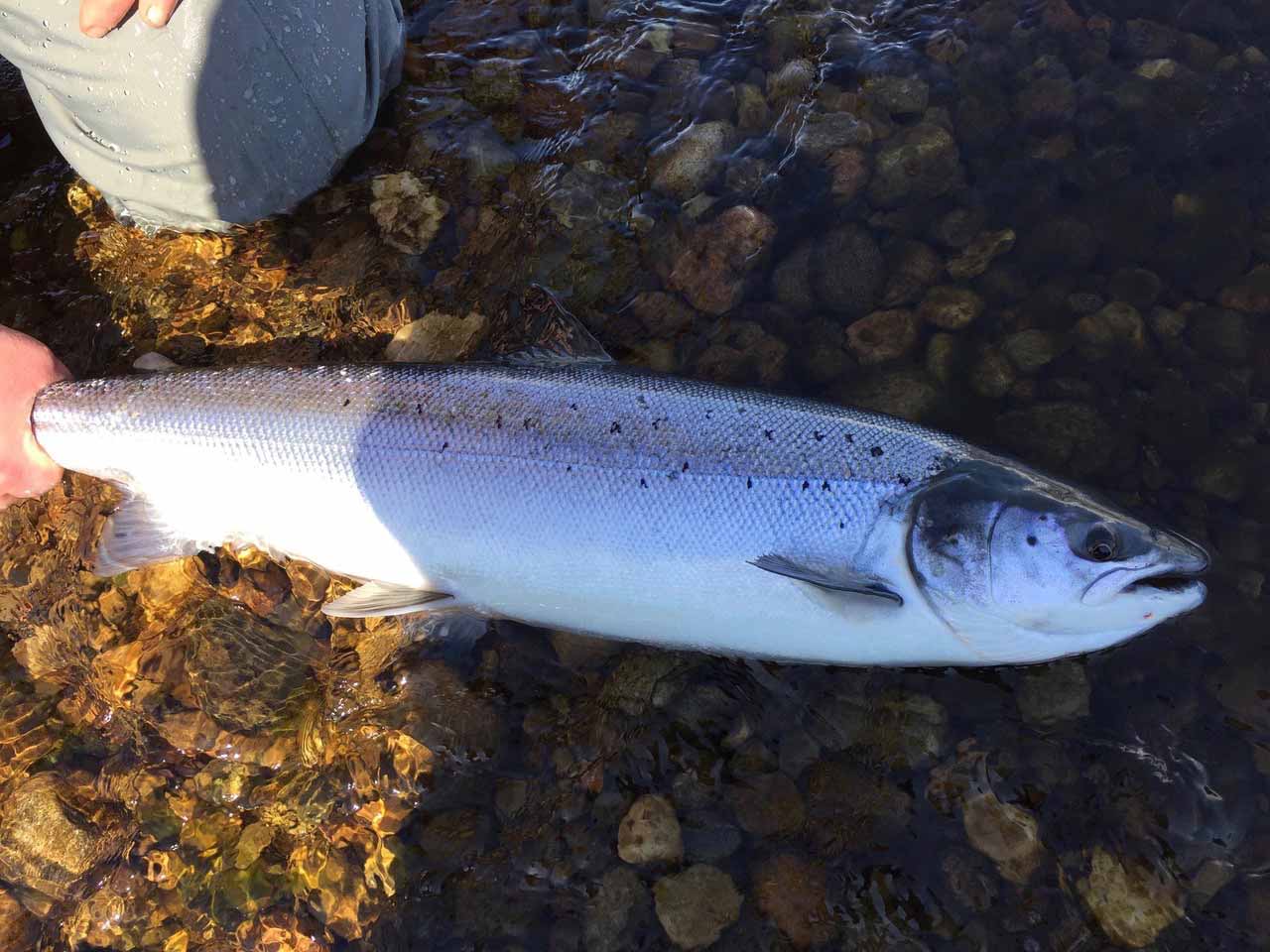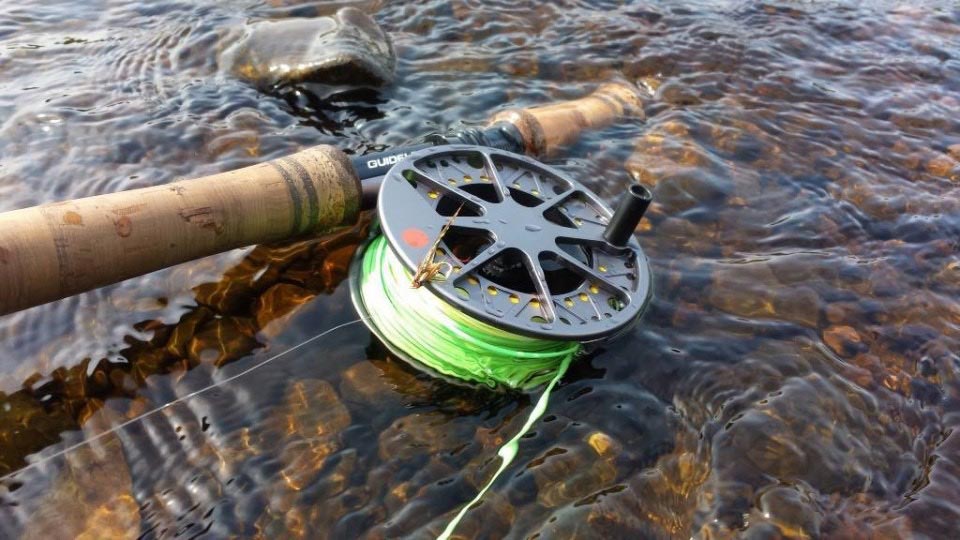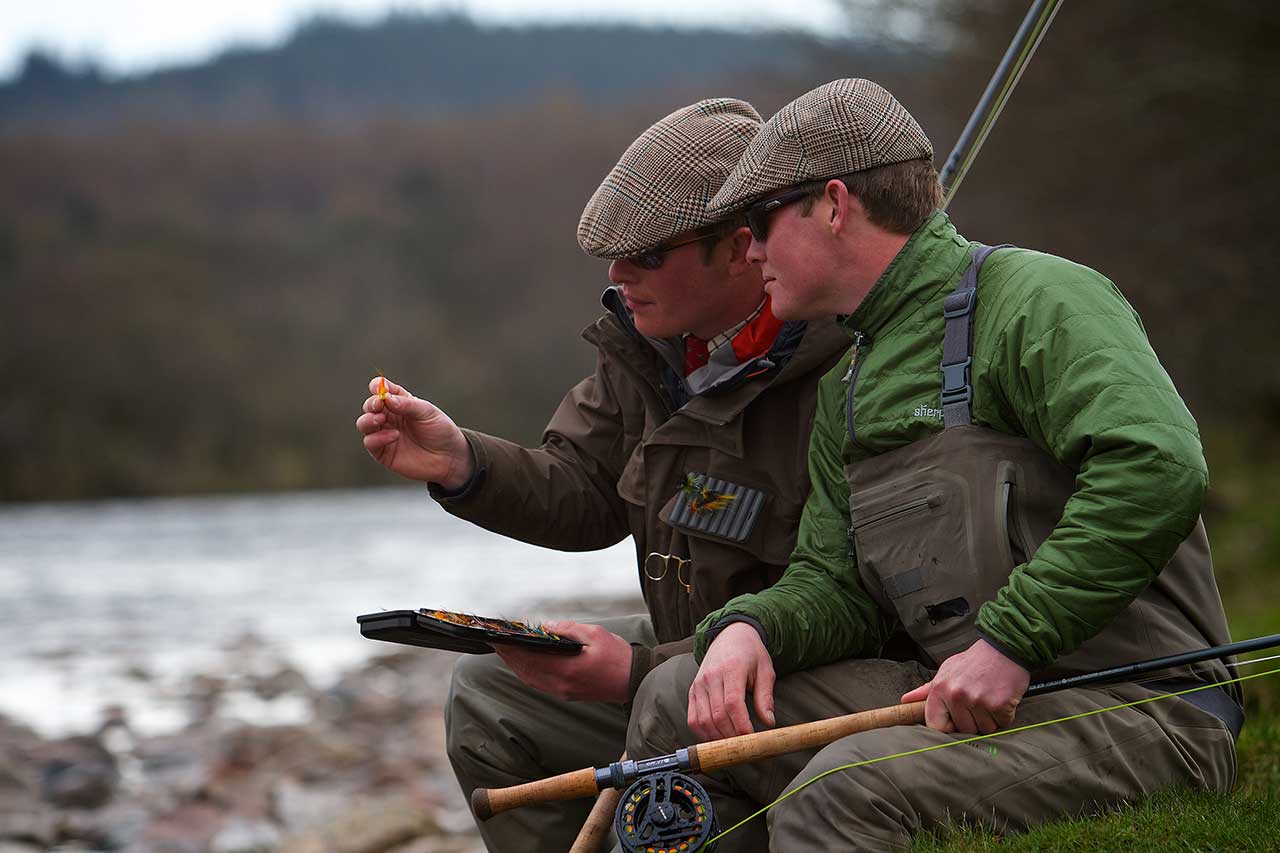The Secrets of Chasing Scottish Summer Silver

Timing the Summer Salmon Run
Summer is a great time of year to be salmon fishing in Scotland. The trees and foliage are in full leaf and there are signs of life everywhere you look. The riverbanks are awash with colour with no shortage of wild flowers and often the scene is truly picture postcard. With the longer days at this time of year there are also plenty of opportunities to fish early in the morning and then again at dusk. These are special and magical times to catch a Scottish summer salmon.
The summer run in Scotland usually starts from early June and runs through until the end of August. Of course when the fish run is usually water dependent on most rivers. Most of the time river levels are low over the summer period and so often the best sport can be after a lift in water. The fresh fish caught at this time of year on Scotland’s rivers are usually hard fighting grilse which can range from anything between four and seven pounds as well as larger summer salmon which can weigh into the teens of pounds or in some cases into the twenties.
Best Times of Day to Fish
So how do optimise your chances when fishing for salmon in Scotland? As already mentioned a lot depends on weather and water conditions. Often the water can be low and the weather can be bright, hot and sunny. This can make salmon fishing in the summer challenging. However you can definitely refine your tactics so that you stand the best chance off enjoying success.
If it is very bright, hot and sunny you need to choose the times of day you fish carefully. It is likely that the fish will be most active at the coolest times of the day. It is also at these times that the fish are mostly likely to run. In lower light conditions salmon usually feel more confident to move. It is therefore always worthwhile considering fishing early in the morning and then again late at night into dusk. Many anglers choose to rest pool through the heat of the day especially if the water is low and this can be an effective tactic. Often there is no point in disturbing the fish in the pools in low water as this could hinder your chances for later in the evening. Of course if there is a good height of water and it is a cooler day with plenty of cloud cover this does not apply and you can quite easily catch fish through the day.


Lighter Tackle for Summer, Fluorocarbon Leaders
Another consideration during the summer months is to use lighter tackle. If the water is low and clear using a shorter fly rod can often avoid casting a shadow over the pool which can go on to spook the fish. In addition to this with a shorter rod a lighter fly line can be used. This can result in less disturbance on the water when casting which can often be crucial.
When it comes to terminal tackle you can consider using fluorocarbon for leader material instead of nylon. Fluorocarbon is of much thinner diameter than the equivalent breaking strain of nylon. Using fluorocarbon in certain circumstances especially if the water is low and clear can often give the edge.
Ready for the Catch of a Lifetime?
Book your Scottish salmon fishing holiday today and reel in the adventure!
Experience the thrill of salmon fishing in Scotland this summer – from serene riversides to heart-racing takes, it's an angler’s paradise. Whether you're a seasoned fly fisher or a first-timer, our expert-guided trips and handpicked locations will help you make unforgettable memories.
Fly Selection and Presentation
When it comes to flies smaller flies even flies down to a size 16 or 18 can be productive especially if the water is clear and low. It can often be worth trying hitch flies and even flies which skate like muddlers. These flies create a disturbance on the surface of the water and this can be very attractive to salmon and induce a response. This way of fishing is very visual and certainly exciting.
Finally we come to approaching the pool that you intending on fishing. It is always worthwhile adopting a stealthy approach to avoid spooking the fish. This can involve staying well back from the water when walking along the pool itself to avoid casting a shadow. Also if you don’t need to wade a pool then its best to stay out of the water. If wading is absolutely necessary then try and keep wading to a minimum.
Salmon fishing in Scotland can be highly productive and very enjoyable. By adapting your tactics to the water and weather conditions this can then go on to make your fishing holiday a much more productive experience.

